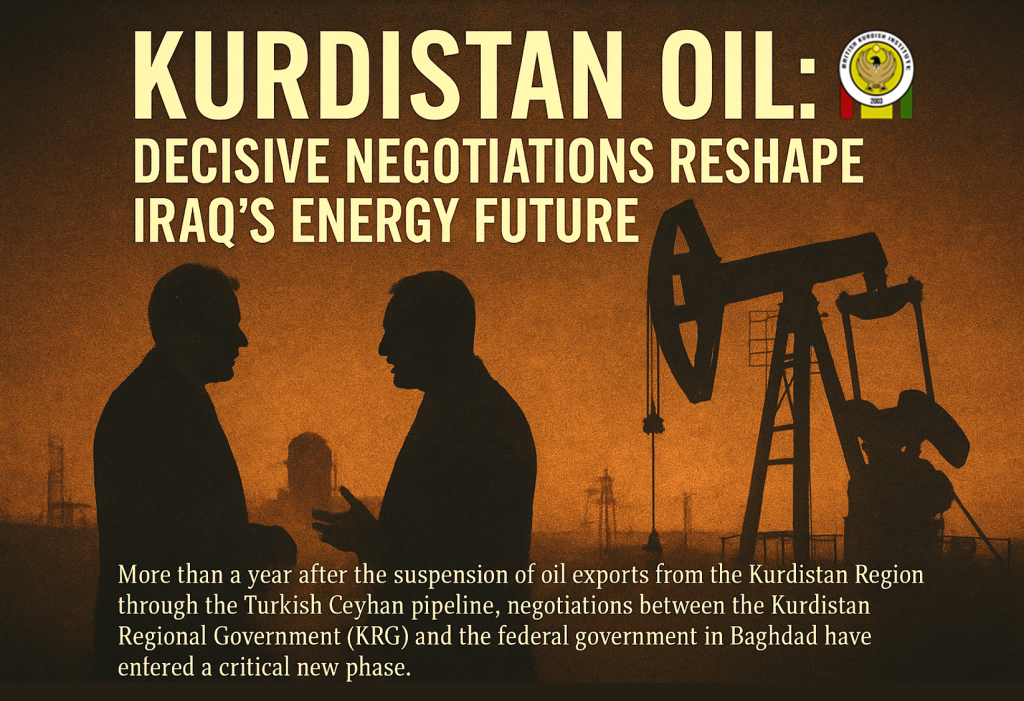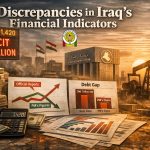More than a year after the suspension of oil exports from the Kurdistan Region through the Turkish Ceyhan pipeline, negotiations between the Kurdistan Regional Government (KRG) and the federal government in Baghdad have entered a critical new phase. The outcome of these talks is not only vital for Iraq’s domestic stability but also carries major implications for global energy markets, international oil companies, and regional geopolitics.
Background: How the Oil Crisis Began
The crisis dates back to March 2023, when the International Court of Arbitration in Paris ruled in favor of Baghdad. The court found that Turkey had violated a 1973 oil agreement by allowing the Kurdistan Region to independently export crude.
As a result, the Ceyhan pipeline was shut down, halting the daily flow of nearly 400,000 barrels of Kurdish oil. This decision delivered a severe financial blow to the Kurdistan Region, reduced Iraq’s public revenues, and created shockwaves in international energy markets.
The Core Issues in Baghdad–Erbil Negotiations
Talks between Erbil and Baghdad now focus on three main disputes:
-
Revenue Management
-
Baghdad insists that SOMO (State Organization for Marketing of Oil) must oversee sales and collect revenues.
-
Erbil, however, demands budget guarantees that ensure its fair share of federal funding.
-
-
International Oil Companies
-
Energy giants such as DNO and Genel Energy have suffered massive losses during the export halt.
-
They are pressuring both sides to secure an agreement that protects their investments and restores operations.
-
-
The Constitutional Dispute
-
At the heart of the conflict lies Article 112 of the Iraqi Constitution, which governs oil and gas management.
-
Competing interpretations have fueled legal uncertainty, preventing a long-term settlement.
-
Obstacles Blocking a Deal
The challenges ahead can be grouped into three categories:
-
Legal: Conflicting constitutional interpretations and the absence of clear national energy legislation.
-
Political: Deep mistrust between Erbil and Baghdad, combined with pressure from Iran-backed factions that oppose Kurdish autonomy.
-
Financial: Kurdistan’s debt to oil companies, alongside Baghdad’s fear of losing control over billions in oil revenues.
The Cost of Stalemate
Numbers tell the story more clearly than words. Since exports stopped, Iraq and Kurdistan together have lost an estimated $12 billion—nearly $1 billion per month.
-
The KRG is struggling to pay the salaries of 1.2 million employees, many of whom have faced delays of three months or more.
-
International oil companies have lost nearly $2.5 billion, forcing some to freeze exploration projects.
These financial strains are fueling public frustration in Kurdistan, raising the stakes in Baghdad, and signaling instability to global energy investors.
The Role of the Kurdistan Region Presidency
The Kurdistan Presidency has emerged as a key mediator, working to rebuild trust between the two sides. Its efforts include:
-
Hosting regular meetings with Iraq’s prime minister.
-
Offering compromise solutions that balance Baghdad’s authority with Erbil’s constitutional rights.
-
Engaging internationally with Turkey, Western governments, and investors to promote stability and encourage investment.
The presidency emphasizes that a stable oil partnership serves not only Kurdish interests but also Iraq’s national unity and long-term political stability.
Future Scenarios: What Comes Next?
Several possible outcomes lie ahead:
-
Joint Agreement: A deal under SOMO supervision with guaranteed revenue-sharing for Kurdistan.
-
Interim Settlement: Temporary arrangements allowing exports to resume without solving the constitutional dispute.
-
Negotiation Failure: A deadlock that worsens Kurdistan’s financial crisis and fuels political unrest.
-
Tripartite Agreement: Involvement of a third international actor to provide guarantees on economics and security.
Conclusion: More Than Just a Pipeline
The fate of the Kurdistan–Ceyhan oil pipeline is about much more than crude exports. It is a lifeline for Iraq’s economy, a bargaining chip in Baghdad–Erbil relations, and a barometer for regional stability.
If negotiations succeed, Iraq could witness a historic step toward a sustainable economic partnership between the central government and the Kurdistan Region. If they fail, the pipeline will remain a tool of political pressure, shaping every internal and regional crisis for years to come.









